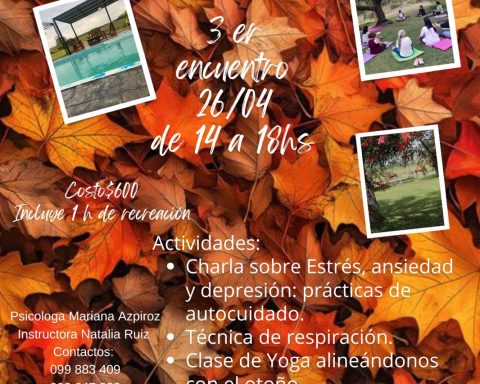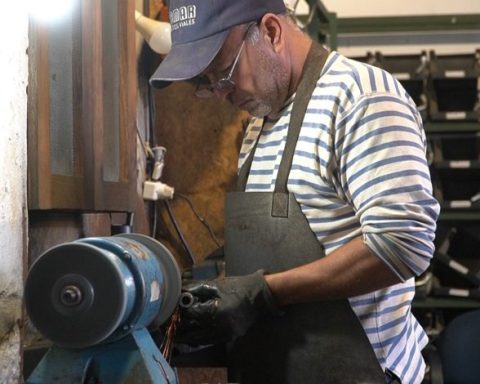This Sunday, March 26, marks the World Cervical Cancer Prevention Daywhich in Uruguay continues to be the fourth most common type of cancer in women –the first is the breast– and the fifth in mortality level.
“Every day a woman is diagnosed with this cancer and every three days a woman dies linked to the cancer itself or its complications,” he told The Observer the gynecologist Fernando González of the Uruguayan Gynecology Society (SGU)
This type of cancer is 100% preventable and 90% curable if detected earlyaccording to figures from the Hoy por vos portal, a site of the Honorary Commission for the Fight against Cancer and the SGU, among other institutions.
“The PAP detects lesions in time before it is a cancer. Sometimes we not only detect early cervical cancer, also premalignant lesions“said the gynecologist.
Gonzalez told The Observer that Uruguay continues to be a “underdeveloped or developing country” in terms of cervical cancer prevention.
“No one is more than 50 or 60 kilometers from a health center where they can do a Papanicolaou (PAP), but there are other factors that play a role. Fear of having the disease or ignorance they don’t improve the rate of getting the tests done much,” explained the specialist.
What is cervical cancer and how to prevent it?
According to information from the National Cancer Registry of the Honorary Commission for the Fight against Cancer, cervical cancer arises, in most cases, from “persistent infections” of the human papillomavirus (HPV). During the first phase of the disease –when alterations or precancerous lesions occur– symptoms are often not visiblehence the importance that doctors place on periodic controls.
“When the lesions are not diagnosed and treated on time, they become cervical cancer,” warns the Hoy por vos portal. “In some cases can spread to other organswhich is known as metastasis,” the site adds.
How is the disease prevented? There are several recommendations, since it is a 100% curable type of cancer, something that does not occur in the rest. On the one hand it is recommended to use protection when having sex, as well as regular Pap smearswhich allows detecting the presence of HPV. Smoking tobacco increases the chances of contracting the disease.
Besides, in Uruguay the HPV vaccine is available, which protects for types 16 and 18 of the virus. “In Uruguay, the Ministry of Health recommends it for free to girls, boys and young people from 11 to 26 years old,” recalls Hoy por vos. The vaccine is also included in the vaccination scheme.
“In other places there is HPV test to find out whether or not the patient has a virus that could be carcinogenic over time,” González said of a methodology that It’s not in Uruguay yet.
HPV vaccine
The vaccine is administered free for girls from 10 or 11 years old to 26. According to the provision of the Ministry of Public Health, it is free and not mandatory for men and women of this age range.
The figure: 70% of cases are prevented with this vaccinewhich has been used worldwide for 14 years and in Uruguay for 10 years.
“When it was established in Uruguay there was a lot of resistance from different organizations and parents. Fortunately it is less and less, a little for information and a little because time passes and the benefit is highly greater than the risk. There have been no serious illnesses“said the gynecologist González.
Medical consultations have a key role
Doctors recommend patients to have the pap smear test at least once every three yearshowever there are women who “practice it every five or ten years,” said González.
The Ministry of Public Health recommends the PAP from the age of 21 and up to 69. “The first two PAP tests are carried out annually and if they are normal they are repeated every three years,” the ministry states on its website.
Prior to 2020 there had been a slight increase in the uptake of this cancer but, according to González, “the pandemic threw back” that statistic and a “delay in all cancer prevention controls in Uruguay and in the world” was generated.


















